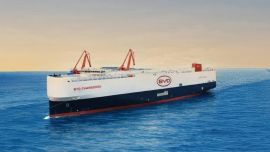The phrase “hostage to fortune” has been around for the last four centuries but Independence Day on Thursday found Argentina far more hostage to poverty and disease. Bad enough already but these twin disasters do not even present themselves as a two-front war but as a problem whose solution entails a cruel either/or proposition dividing the country in the process.
Quarantine saves thousands of lives but lockdown spells meltdown – both these truths are irrefutable and yet completely in conflict despite the efforts to present this as a false dilemma. While it is true that this global pandemic is not discriminating very much among nations when it comes to percentages of economic shrinkage either (although ironically China giving birth to this plague might well be the big exception in registering some growth), it is also true that Argentina has far less fat to shed after a decade of stagnation falling into recession in the last couple of years and cannot really compare – this year’s contraction might well be even steeper than elsewhere and nor can it be totally separated from a record-long quarantine.
Yet a week which has seen the Brazilian and Bolivian presidents fall prey to coronavirus does not seem the best time to question quarantine here, with a record death toll of 75 marking the start of a chilly winter week, which has also seen the daily number of new infections almost double. In some ways Argentina’s strict quarantine has been the victim of its own success in keeping the number of deaths well below the levels of most of the region, holding the ever-receding peak of infections at bay, leading many people to minimise the impact of Covid-19. Yet even the relatively low death toll so far should not be despised – it already almost trebles the war dead from the 1982 South Atlantic conflict, which is rightly seen as a national tragedy. That figure is also relative – the fallen conscripts of 1982 had an average of perhaps 50 years of life each ahead of them while many (although far from all) coronavirus fatalities already had one foot in the grave, so to speak – measuring in terms of years of existence lost, the red horse of war might still be running ahead of the white horse of pestilence in this apocalyptic race.
By the same token quarantine sceptics might argue that 6,627 people died on the roads last year (and over 8,000 in more prosperous years with more car sales) without the auto industry losing a single day of production on that account, whereas less than 2,000 deaths now have brought the entire country to a halt. However, we are talking about almost 2,000 deaths and counting – we still do not know whether a continuing compound multiplication of cases will cause the collapse of an erratic health system or what a possible second wave (10 times more devastating in the case of Spanish flu a century ago) might bring. A total uncertainty which places the health aspect at a disadvantage to the economic, where the damage so far can be exactly quantified with figures like April’s minus 26.4 percent slump, while continued ruin is equally certain even if the percentage forecasts are more variable.
The only certainty is that pandemic strategy must remain the central issue even if eclipsed at times in the last month and week by other news. The Vicentin expropriation has fallen into abeyance for now. The trials of Kirchnerite corruption and espionage under the Mauricio Macri administration compete with each other and coronavirus for prime attention undeservedly – thus the ruling on the Kirchnerite tycoon Lázaro Báez would prompt less outrage if properly understood as not aiming at his acquittal but against remanding people in custody forever in cases which never come to trial. The gruesome murder of Vice-President Cristina Fernández de Kirchner’s former aide Fabián Gutiérrez was certainly shocking but attempts to turn him into an Alberto Nisman (or Santiago Maldonado) remain far-fetched. The debt issue is genuinely important but it remains to be seen if the government’s evident determination to avert default with this week’s offer will succeed – here it might be asked in passing how a government unable to pay more than 39 cents per dollar in pre-quarantine March can pay 53 cents now amid economic collapse.
The only real question now is whom do we fear most – the black horse of poverty (amended from the Biblical famine) or the white horse of pestilence.






















Comments